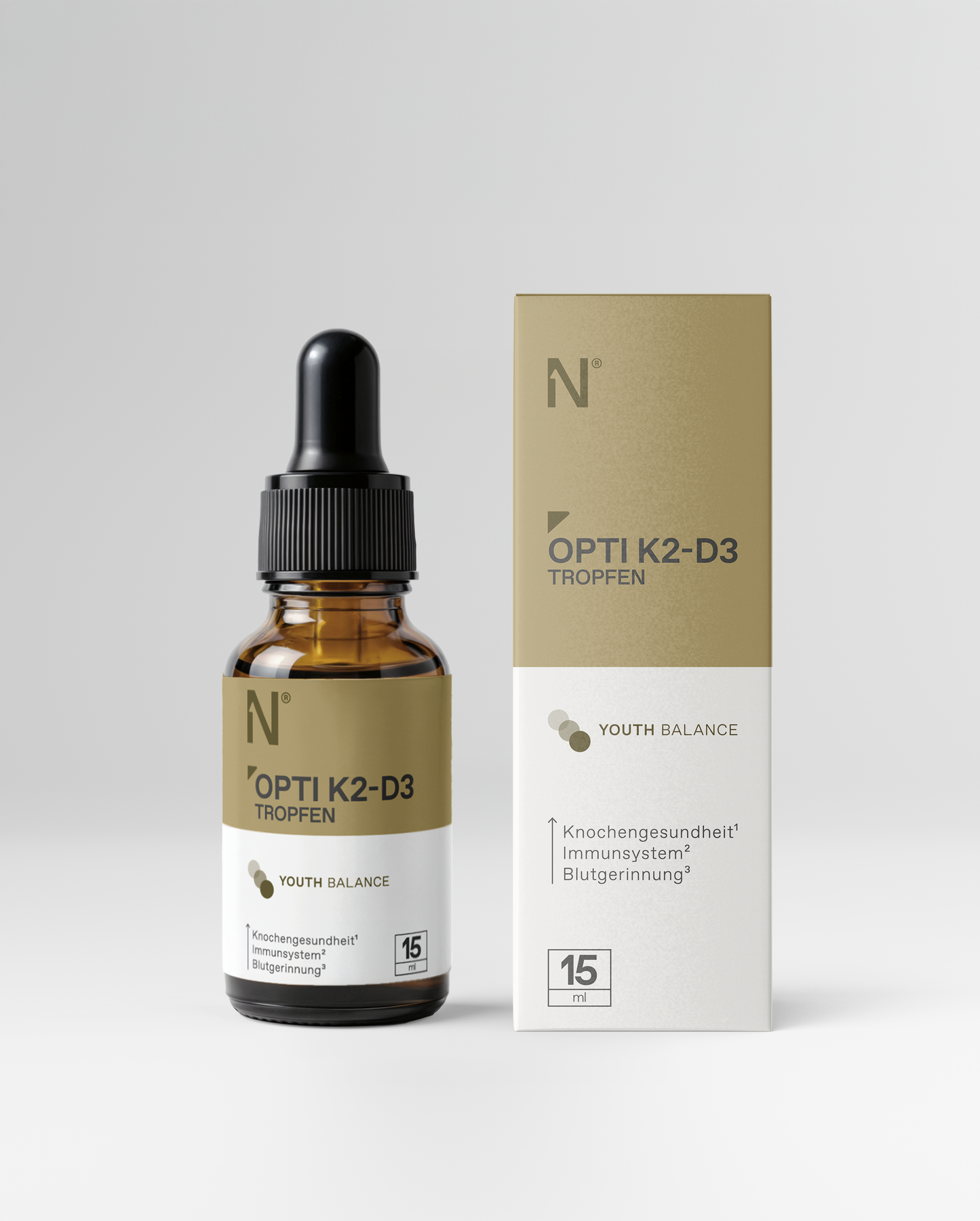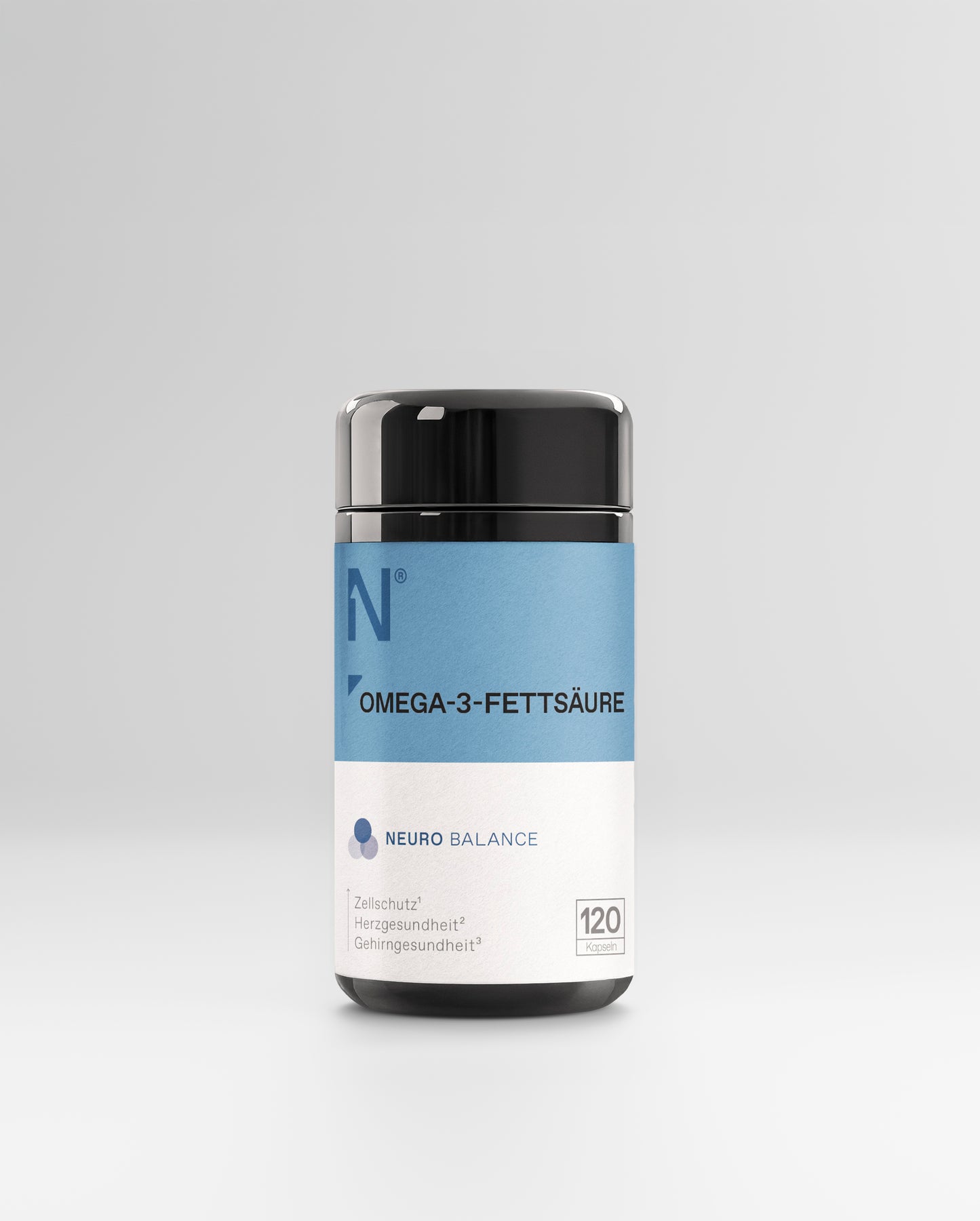Silent inflammations – the hidden enemy in your body. Unlike acute inflammations with their classic symptoms like redness, swelling, and pain, chronic low-grade inflammatory processes often go unnoticed. However, these hidden inflammations in the body can have serious long-term consequences.
The human body is a masterpiece of communication – but sometimes it only sends faint signals when something is wrong. Recognizing these early can be crucial for your health. Below, you will learn which signs indicate silent inflammations, how they develop, and what you can do about them.
What are silent inflammations and how do they develop?
Silent or chronic low-grade inflammations differ fundamentally from acute inflammatory reactions. While acute inflammations represent a meaningful, time-limited defense reaction of the immune system, silent inflammations are permanently activated processes at a low level – so to speak, an immune system under constant stress.
This form of inflammation arises from various factors:
-
Dietary triggers: Highly processed foods, refined carbohydrates, trans fats, and excessive sugar consumption can promote inflammatory processes.
-
Chronic stress: Persistent psychological stress leads to the release of stress hormones that can promote inflammation.
-
Lack of exercise: Regular physical activity naturally has anti-inflammatory effects – without it, this protective effect is lost.
-
Environmental toxins: Pollutants, pesticides, and other environmental toxins can chronically activate the immune system.
-
Lack of sleep: Insufficient regeneration at night disrupts immune regulation and can promote inflammatory processes.
-
Gut health: A disturbed gut flora and increased intestinal permeability can trigger systemic inflammations.
The modern lifestyle with its typical stresses and lack of necessary balance unfortunately forms the perfect breeding ground for these low-level inflammatory processes.
The long-term risks of silent inflammations
Hidden inflammations in the body can pose significant long-term health risks:
-
Cardiovascular diseases: Inflammatory processes can damage blood vessel walls and contribute to arteriosclerosis.
-
Type 2 diabetes: Chronic inflammations can promote insulin resistance.
-
Neurodegenerative diseases: Inflammatory processes are associated with Alzheimer's and other forms of dementia.
-
Autoimmune diseases: The misguided immune system can attack the body's own tissues.
-
Cancers: Chronic inflammations can disrupt DNA repair mechanisms and increase the risk of cancer.
Particularly alarming is the connection between silent inflammations and accelerated aging – a phenomenon known in science as "Inflammaging" is called. Chronic inflammatory processes release oxidative stress, which damages cell structures and accelerates the aging process.
Typical signs of silent inflammations
Hidden inflammations in the body can manifest through various symptoms:
-
Chronic fatigue: Persistent exhaustion despite sufficient sleep can indicate inflammatory processes.
-
Joint and muscle pain: Diffuse pain without recognizable cause can be signs of inflammation.
-
Concentration problems: The so-called "brain fog" – a feeling of mental cloudiness – is associated with inflammatory mediators.
-
Digestive complaints: Bloating, irregular bowel movements, and abdominal pain can indicate intestinal inflammations.
-
Skin problems: Skin impurities, eczema, and premature skin aging can be signs of systemic inflammations.
-
Weight problems: Despite a healthy diet and sufficient exercise, stubborn overweight can persist.
-
Increased susceptibility to infections: The immune system burdened by chronic inflammations can be more vulnerable to infections.
-
Mood swings: Depressive moods and irritability can be associated with inflammatory processes.
-
Sleep disorders: A disturbed sleep-wake rhythm can be both a cause and a consequence of chronic inflammations.
These symptoms are nonspecific and can have other causes. However, if several of these signs occur together, this can be an indication of silent inflammations.
How silent inflammations can be diagnosed in the body
Various diagnostic methods are available to detect hidden inflammations in the body:
-
C-reactive protein (CRP): This classic inflammation marker can also indicate mild chronic inflammations, especially in the high-sensitivity variant (hs-CRP).
-
Interleukin-6 (IL-6): As an important inflammatory mediator, elevated IL-6 can indicate chronic inflammatory processes.
-
Tumor necrosis factor-alpha (TNF-alpha): This messenger plays a central role in inflammatory reactions.
-
Fatty acid profile: The ratio of omega-6 to omega-3 fatty acids can provide insights into the inflammation potential.
-
Intestinal permeability tests: Elevated values can indicate a disturbed intestinal barrier that promotes systemic inflammations.
In case of persistent complaints, it is advisable to consult a medical professional. A holistic view of your health by professionals with an integrative approach can be especially helpful to detect hidden inflammations and identify their causes.
The hidden dynamics: Silent inflammation and its diverse effects
The silent inflammation, also called "silent inflammation," often goes unnoticed yet represents an underestimated health risk. This low-grade, subclinical inflammation can spread throughout the body and promote numerous chronic diseases. It is important to recognize silent inflammations, as they often manifest only through subtle signals such as fatigue, social withdrawal, or lack of drive.
The causes of silent inflammations are diverse: an unhealthy diet with too many industrially processed foods, little exercise, and unfavorable handling of stress can fuel inflammatory processes in the body. Especially endotoxemia – the release of lipopolysaccharides from the cell wall of gram-negative bacteria in the gut – plays a central role. These endotoxins can enter the bloodstream through a disturbed gut barrier and trigger inflammatory processes in the body.
A fascinating biochemical mechanism is evident in changes in tryptophan metabolism as a negative consequence of silent inflammations. Tryptophan, the precursor of the happiness hormone serotonin, is increasingly metabolized via an alternative pathway during chronic inflammations. High IDO activity shifts tryptophan metabolism toward kynurenine, which can contribute to neuroinflammatory processes. This shift partly explains why people with silent inflammations often suffer from mood swings.
To combat silent inflammations, a predominantly vegetarian and plant-based diet rich in secondary plant compounds and anti-inflammatory, inflammation-inhibiting substances is recommended. Plant-based nutrition can help improve the balance of gut bacteria and strengthen the gut barrier. A healthy gut, in turn, prevents endotoxins from entering the bloodstream and fueling inflammatory processes in the body.
The unnoticed danger of a silent inflammation is increasingly detectable through specific laboratory tests. The so-called Silent Inflammation Test makes it possible to clarify subclinical inflammations. Various parameters of the Silent Inflammation Check, such as hsCRP (high-sensitivity C-reactive protein) and other inflammatory markers, are measured, which would otherwise often go unnoticed.
Obesity and type 2 diabetes are closely linked to silent inflammations and can both promote and be exacerbated by them. A deficiency in antioxidant minerals further worsens the situation. While acute inflammations subside after a short time, inflammations last longer when they become chronic. The body uses resources that are then lacking elsewhere and cannot sufficiently recover.
If silent inflammations go undetected for years, this can lead to serious health problems. Therefore, it is important to pay attention to possible symptoms of a silent inflammation and seek professional advice if suspected. The good news: with a favorable diet, sufficient exercise, and targeted supplementation, the vicious cycle can be broken – your body will thank you.
Nutrador® dietary supplements against silent inflammations
High-quality Nutraceuticals can make an important contribution to combating silent inflammation. Nutrador® offers specially developed products that can specifically exert anti-inflammatory effects:
Vitamin D3 + K2
Vitamin D can have a significant impact on inflammatory processes. It regulates the production of pro-inflammatory cytokines and supports immune balance. The K2D3 drops from Nutrador® ensure optimal bioavailability so that the body can make the best use of the vitamin. Vitamin K2 perfectly complements the effect and additionally supports bone health.

Omega-3
The anti-inflammatory supplements from Nutrador® also include high-quality omega-3 fatty acids. EPA and DHA from the Omega-3 fatty acid capsules can inhibit the production of pro-inflammatory substances and contribute to the formation of inflammation-resolving resolvins. The high-purity quality and optimal dosage make this supplement especially valuable in combating silent inflammation.

The mitochondria – the powerhouses of our cells – play a crucial role in inflammatory processes. Nutrador® products support mitochondrial health and can help reduce oxidative stress, which is closely linked to chronic inflammation.
Nutrition for silent inflammation
Your daily diet can have pro-inflammatory or anti-inflammatory effects:
Anti-inflammatory foods:
-
Berries (blueberries, raspberries, blackberries)
-
Leafy greens (spinach, kale, chard)
-
Healthy fats (extra virgin olive oil, avocados, nuts)
-
Fatty fish (salmon, mackerel, herring)
-
Spices (turmeric, ginger, cinnamon)
-
Fermented foods (sauerkraut, kefir, kimchi)
Pro-inflammatory foods you should avoid:
-
Industrially processed products
-
Trans fats and inferior vegetable oils
-
Refined sugar and white flour products
-
Excessive alcohol consumption
-
Processed meat and sausages
Especially valuable for gut health and thus for reducing systemic inflammations are prebiotic fibers and probiotic foods. They support a healthy gut flora, which is considered the foundation of a balanced immune system.
Lifestyle and daily habits for inflammation reduction
Besides nutrition and targeted supplementation, your lifestyle can be crucial in reducing silent inflammations:
-
Regular exercise: Moderate physical activity can have anti-inflammatory effects. Endurance sports such as swimming, cycling, or brisk walking are particularly suitable.
-
Stress reduction: Chronic stress promotes inflammatory processes. Techniques such as meditation, progressive muscle relaxation, or breathing exercises can lower stress hormones.
-
Sufficient sleep: During sleep, the body regenerates, and important inflammation-regulating processes take place. Optimal sleep hygiene is therefore indispensable.
-
Digital detox: Constant availability and the blue light influence of electronic devices can trigger stress reactions. Regular breaks from digital media can be valuable.
-
Natural light: Exposure to natural daylight regulates cortisol levels and can thus reduce inflammation-promoting stress.
-
Avoidance of environmental toxins: Where possible, you should reduce contact with harmful substances in cosmetics, cleaning agents, and other everyday products.
These measures can jointly develop a synergistic effect and help to sustainably reduce silent inflammations.
Integrative approaches – conventional medicine meets naturopathy
A holistic approach to combating silent inflammations combines the best from different worlds:
Conventional medicine offers precise diagnostics and can intervene quickly in acute situations. Dietary supplements vitamins and other micronutrients from the field of orthomolecular medicine can support the body's self-healing powers. Naturopathic methods such as hydrotherapy or phytotherapy offer further valuable treatment options.
A personalized approach that takes your individual situation into account is crucial. The best dietary supplements can only fully unfold their effect when they are part of a holistic concept tailored to your specific needs.
Support from professionals with an integrative approach can be especially valuable to optimally coordinate and adjust the various therapy options.
Conclusion on silent inflammations
Silent inflammations can manifest through diverse, often nonspecific symptoms – from chronic fatigue to digestive problems to concentration difficulties. Early recognition of these signs and proactive management can help minimize long-term health risks.
An anti-inflammatory diet, regular exercise, stress reduction, and targeted supplementation with high-quality products from Nutrador® form the cornerstones of a holistic approach against hidden inflammation in the body. Especially supporting mitochondrial health and balancing the immune system can be crucial in reducing chronic inflammatory processes.
Remember that every body is individual, and a personalized approach under expert guidance promises the best results.
FAQ
Legal notice regarding health-related claims:
Our information is for general informational purposes only and does not replace medical advice. Dietary supplements do not replace a balanced diet and a healthy lifestyle. Health-related claims about dietary supplements must comply with the Health Claims Regulation (EC) No. 1924/2006 and be approved by the European Food Safety Authority (EFSA). If you have health complaints or questions, please consult a doctor.












